Geeth De Mel
GEO-Bench-2: From Performance to Capability, Rethinking Evaluation in Geospatial AI
Nov 19, 2025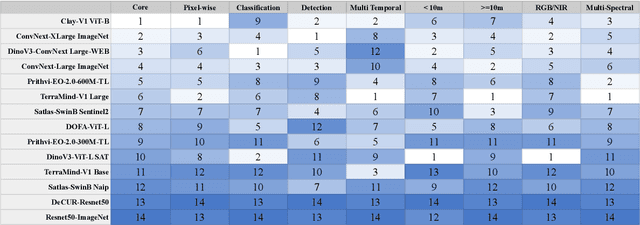
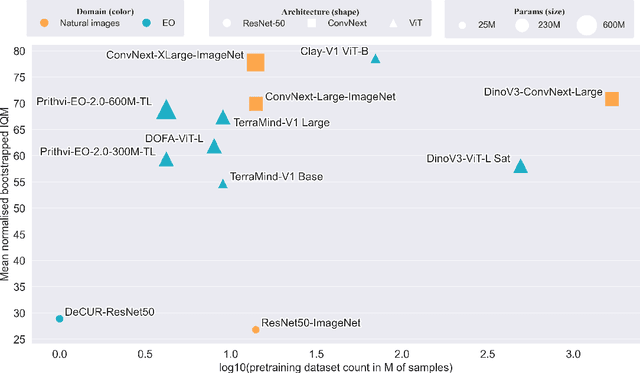
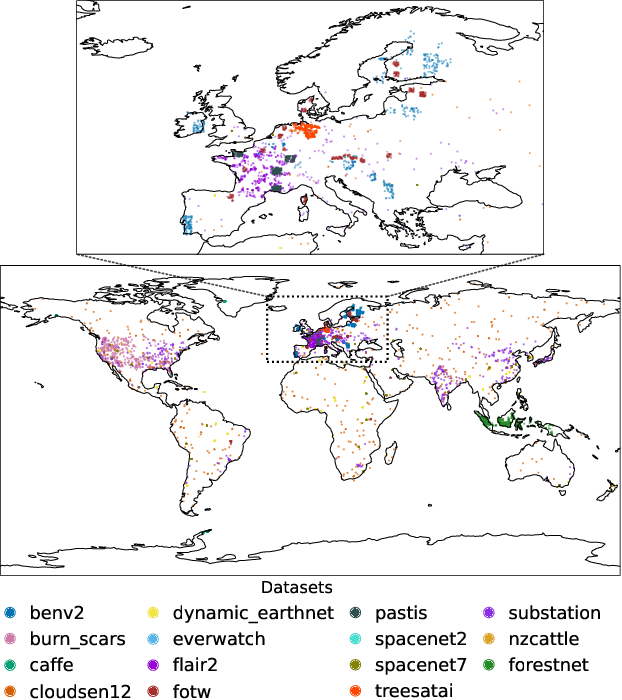
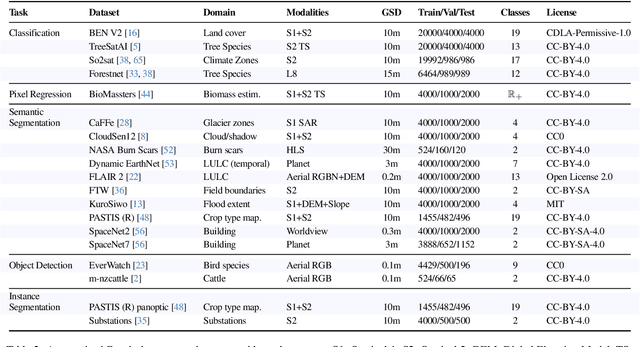
Abstract:Geospatial Foundation Models (GeoFMs) are transforming Earth Observation (EO), but evaluation lacks standardized protocols. GEO-Bench-2 addresses this with a comprehensive framework spanning classification, segmentation, regression, object detection, and instance segmentation across 19 permissively-licensed datasets. We introduce ''capability'' groups to rank models on datasets that share common characteristics (e.g., resolution, bands, temporality). This enables users to identify which models excel in each capability and determine which areas need improvement in future work. To support both fair comparison and methodological innovation, we define a prescriptive yet flexible evaluation protocol. This not only ensures consistency in benchmarking but also facilitates research into model adaptation strategies, a key and open challenge in advancing GeoFMs for downstream tasks. Our experiments show that no single model dominates across all tasks, confirming the specificity of the choices made during architecture design and pretraining. While models pretrained on natural images (ConvNext ImageNet, DINO V3) excel on high-resolution tasks, EO-specific models (TerraMind, Prithvi, and Clay) outperform them on multispectral applications such as agriculture and disaster response. These findings demonstrate that optimal model choice depends on task requirements, data modalities, and constraints. This shows that the goal of a single GeoFM model that performs well across all tasks remains open for future research. GEO-Bench-2 enables informed, reproducible GeoFM evaluation tailored to specific use cases. Code, data, and leaderboard for GEO-Bench-2 are publicly released under a permissive license.
QGen Studio: An Adaptive Question-Answer Generation, Training and Evaluation Platform
Apr 08, 2025Abstract:We present QGen Studio: an adaptive question-answer generation, training, and evaluation platform. QGen Studio enables users to leverage large language models (LLMs) to create custom question-answer datasets and fine-tune models on this synthetic data. It features a dataset viewer and model explorer to streamline this process. The dataset viewer provides key metrics and visualizes the context from which the QA pairs are generated, offering insights into data quality. The model explorer supports model comparison, allowing users to contrast the performance of their trained LLMs against other models, supporting performance benchmarking and refinement. QGen Studio delivers an interactive, end-to-end solution for generating QA datasets and training scalable, domain-adaptable models. The studio will be open-sourced soon, allowing users to deploy it locally.
Encoding Seasonal Climate Predictions for Demand Forecasting with Modular Neural Network
Sep 05, 2023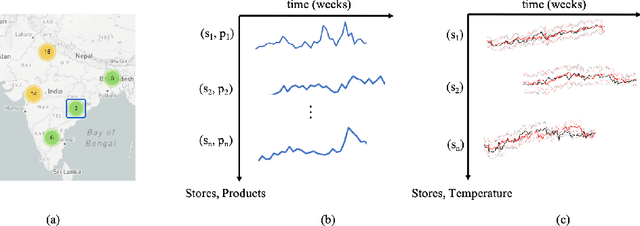
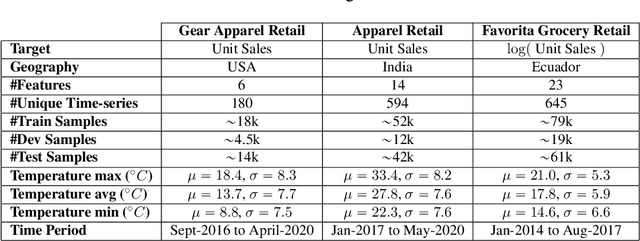
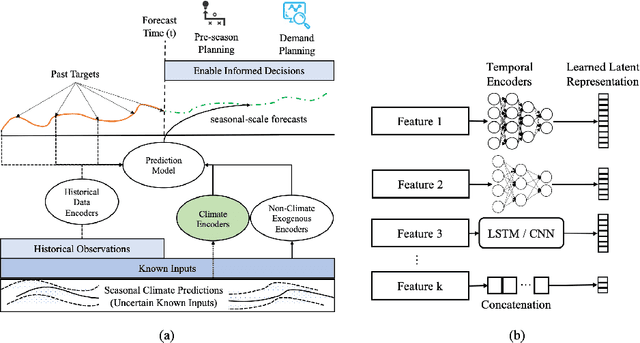

Abstract:Current time-series forecasting problems use short-term weather attributes as exogenous inputs. However, in specific time-series forecasting solutions (e.g., demand prediction in the supply chain), seasonal climate predictions are crucial to improve its resilience. Representing mid to long-term seasonal climate forecasts is challenging as seasonal climate predictions are uncertain, and encoding spatio-temporal relationship of climate forecasts with demand is complex. We propose a novel modeling framework that efficiently encodes seasonal climate predictions to provide robust and reliable time-series forecasting for supply chain functions. The encoding framework enables effective learning of latent representations -- be it uncertain seasonal climate prediction or other time-series data (e.g., buyer patterns) -- via a modular neural network architecture. Our extensive experiments indicate that learning such representations to model seasonal climate forecast results in an error reduction of approximately 13\% to 17\% across multiple real-world data sets compared to existing demand forecasting methods.
 Add to Chrome
Add to Chrome Add to Firefox
Add to Firefox Add to Edge
Add to Edge